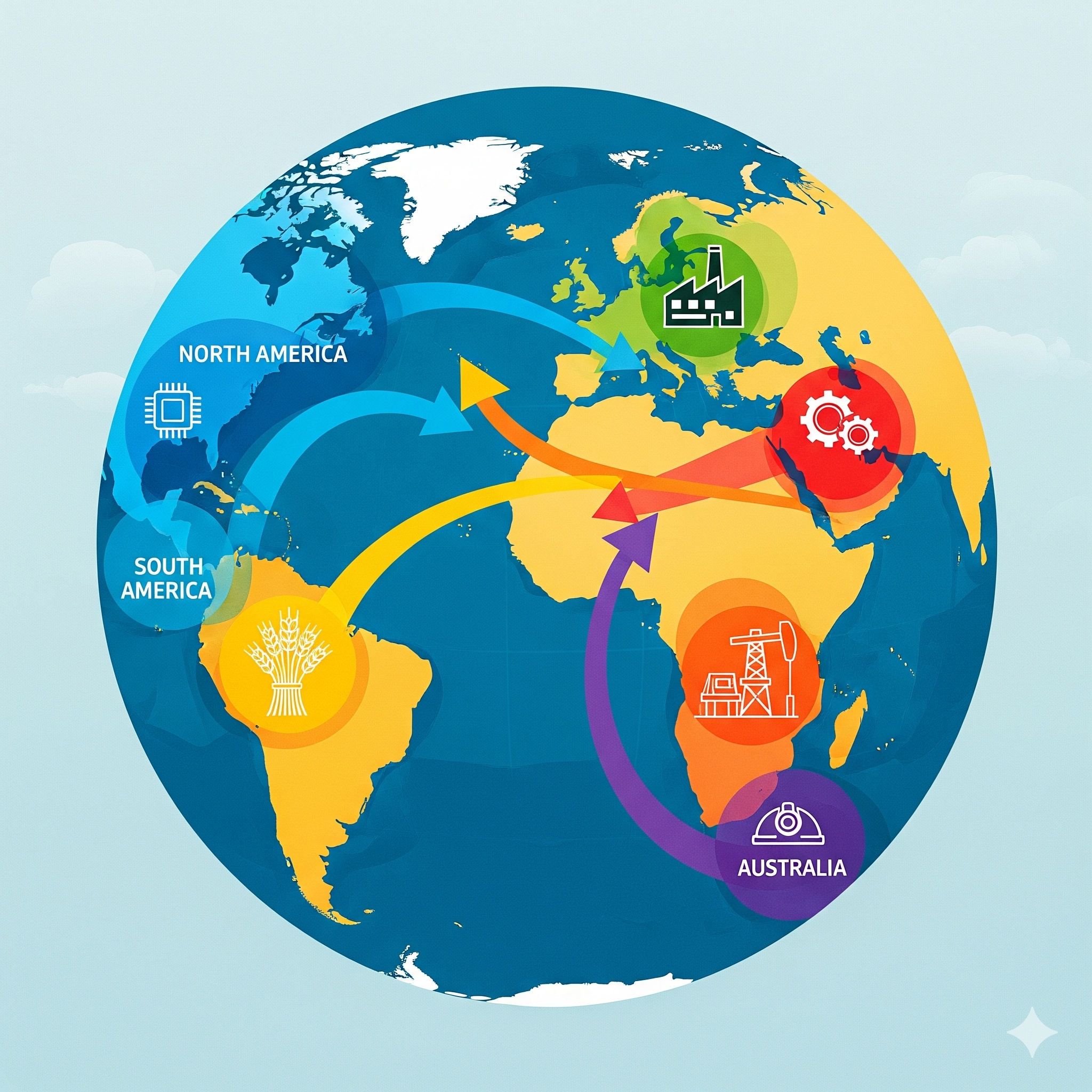When we discuss global trade and economic growth, concepts such as comparative advantage, specialization, and trade frequently emerge as central themes. Understanding these concepts is essential to appreciating how nations and individuals benefit from engaging with each other economically.
What is Comparative Advantage?
Comparative advantage is an economic theory first introduced by economist David Ricardo in the early 19th century. It explains how entities—be they countries, businesses, or individuals—can benefit from specializing in the production of goods and services that they can produce at a relatively lower opportunity cost.
Opportunity cost refers to the value of the next best alternative you forego when choosing one option over another. Comparative advantage suggests that even if one country or individual is more efficient at producing everything (absolute advantage), mutual benefit still exists in trade if each party focuses on their lowest opportunity cost production.
Example: Suppose Country A can produce either 10 cars or 20 computers using the same resources, and Country B can produce either 5 cars or 25 computers. Country A has a comparative advantage in car production (lower opportunity cost: 2 computers per car), while Country B has a comparative advantage in computer production (0.2 cars per computer).
Specialization and Its Benefits
Specialization involves focusing resources—labor, capital, and time—on producing a limited set of goods or services. Specialization based on comparative advantage allows each entity to utilize their resources most effectively, increasing productivity and efficiency.
Key benefits of specialization include:
- Higher Efficiency: Concentrating on fewer products increases proficiency, speed, and reduces waste. For instance, a specialized car manufacturer achieves economies of scale, producing cars more efficiently and cheaply than a generalist.
- Increased Output: Specialization leads to higher overall production levels, as each participant maximizes their productive capacity. For example, Silicon Valley’s specialization in technology innovation contributes significantly to global tech advancement.
- Innovation: Focusing on specific tasks fosters expertise, leading to innovation and technological advancement. Japan’s specialization in robotics and automation technologies has positioned it as a global leader in these fields.
The Role of Trade
Trade allows entities that have specialized based on comparative advantage to exchange goods and services, benefiting all participants by allowing access to a wider variety of goods at lower costs.
Through trade:
- Access to Resources: Nations gain access to goods they cannot efficiently produce domestically. For instance, many nations import oil from Saudi Arabia, which has a comparative advantage in oil extraction.
- Economic Growth: Trade drives market expansion, employment, and income growth. Countries involved in international trade, like Germany, typically enjoy stronger economic growth and higher standards of living.
- Enhanced Relations: Trade fosters international cooperation, peace, and economic interdependence. The European Union exemplifies how trade integration reduces conflicts and builds stable relationships among nations.
Real-world Example: Trade Between the U.S. and China
Consider trade relations between the United States and China. The U.S. has a comparative advantage in high-tech innovation, advanced manufacturing, pharmaceuticals, and financial services, while China excels in large-scale manufacturing, textiles, electronics assembly, and consumer goods. Both countries benefit by specializing in these areas and trading their goods, resulting in lower prices, greater efficiency, and more variety for consumers in both nations. U.S. companies like Apple design high-value technology products domestically but manufacture them in China, benefiting from China’s comparative advantage in production efficiency.
Potential Downsides and Limitations
While comparative advantage and specialization drive economic prosperity, some potential downsides include:
- Dependence: Excessive specialization can make economies vulnerable to market changes or disruptions. For example, countries heavily reliant on tourism, like Greece or Thailand, can suffer significantly during global crises like pandemics.
- Job Displacement: Trade can lead to short-term job losses in industries unable to compete internationally. The decline of the U.S. textile industry due to cheaper imports is a notable example.
- Inequality: Benefits of specialization and trade might disproportionately favor certain industries or regions, potentially increasing economic inequality. For instance, high-tech sectors may flourish while traditional manufacturing sectors decline, widening economic gaps.
Conclusion
Comparative advantage, specialization, and trade remain foundational concepts in global economics, driving productivity, innovation, and international cooperation. Understanding these ideas helps clarify the mechanisms behind global economic interactions and guides policymakers in creating sustainable economic policies that maximize benefits while mitigating potential drawbacks.


Leave a Reply